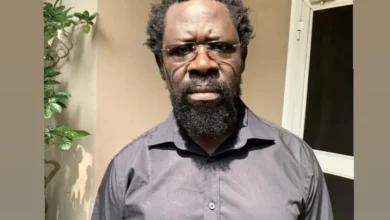Kashim Shettima not guilty of double nomination, Supreme Court rules

The supreme court has held that Kashim Shettima, vice president-elect, is not guilty of double nomination as alleged by the Peoples Democratic Party (PDP).
A five-member panel of the supreme court said this on Tuesday — while delivering judgment in an appeal filed by the PDP seeking to void the election of Shettima and President-elect Bola Tinubu on the grounds of double nomination.
The opposition party claimed that Shettima was still the APC’s candidate for Borno central senatorial district on July 14 when he accepted the nomination for vice-presidential candidate.
According to the appellants, Shettima dropped his senatorial nomination on July 15.
“Facts is that the fourth respondent who had earlier been nominated by his party as a senatorial candidate was given another option or imperative to be the party’s vice presidential candidate. He accepted the second option with a mindset intention and action to relish the first nomination as senatorial candidate,” Emmanuel Agim, supreme court judge, said.
“The party nominated another person to replace him. His prompt and diligent withdrawal as senatorial candidate demonstrates plainly that he had no intentions designed or plans to hold two nominations…the fact that he withdrew after being nominated as vice president is of no mention.
“Multiple nominations with the electoral act does not occur simply because he accepted a second nomination, the fact that the acceptance was immediately relinquished so as to pave way for another person to replace him as senatorial candidate cannot be overlooked or disregarded.
“We have to be very careful the way we read provisions of facts particularly when they are public interest issues and for presidential requirements where it is broad knowledge where it is very clear that the purpose of the statutory provision is to avoid a situation where the person holds two nominations to have an election as a candidate either in two constituencies or political parties.
“The purpose of that provision is to avoid the situation but where a person has clearly said ‘no I don’t want’, and relinquishes one, I do not think it will be acting in good faith to jump on him and infer something else.
“Above all, there was no double nomination. So it is very wrong to contend that the vice-presidential candidate had a double nomination.”
(Cable)











